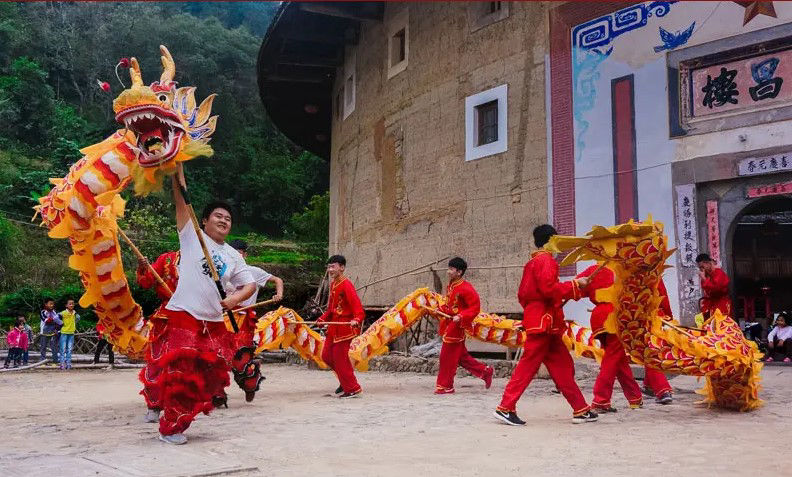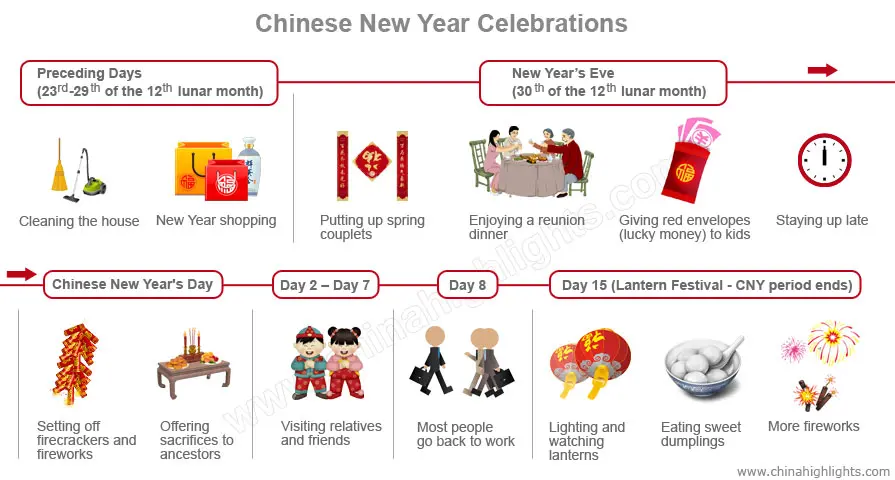3 mins read//
You may wonder how long does Chinese New Year last? Chinese New Year (Lunar New Year) is celebrated for sixteen days (from Chinese New Year's Eve to Chinese Lantern Festival). The preparations start half a month before Chinese New Year's Eve. Many celebration activities for this period are traditional customs, but some are quite new...
Chinese New Year 2022 falls on Tuesday, February 1st, 2022. Here is a daily guide to tell you how Chinese people celebrate Chinese New Year in 2022.
Pre-Chinese New Year Preparations and Activities (Jan. 10–30, 2022)
Jan. 10, 2022: Laba Festival
Some Chinese start to celebrate and prepare for Chinese New Year as early as day 8 of the 12th month of the lunar calendar. This is a festival called Laba ( 腊八 Làbā /laa-baa/ '12th lunar month' + '8'), in the traditional sense, which marks the beginning of the Spring Festival. In 2022, it corresponds to January 10.
The main activity on this day is to pray to ancestors and gods (such as door gods) for fortune and a successful harvest. The main food include the Laba porridge (腊八粥 / Làbā zhōu), Laba tofu (腊八豆腐 / àbā dòufu), and noodles (腊八面 / Làbā miàn).
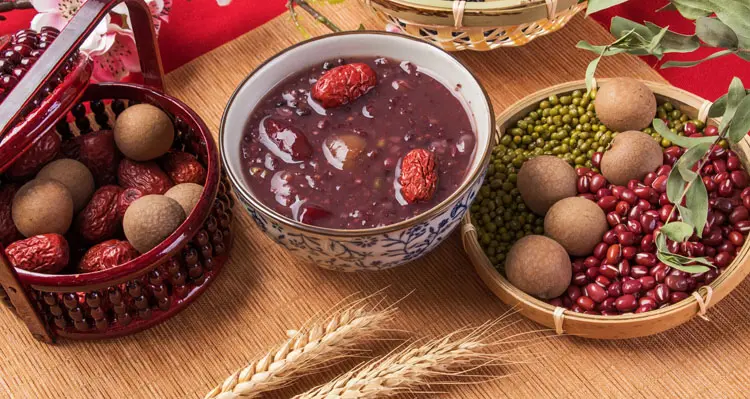
Jan. 25, 2022: Little Year
The Little Year (小年 / xiǎo nián) marks the beginning to do preparation for Lunar New Year. From this day, people begin to prepare goods, clean house, pray to the stove god, etc. It expresses people's good wishes to bid farewell to the old year and usher in the New Year. Due to different customs around the year, the dates of the Little Year are not the same. It is the 23rd day of the twelfth lunar month in northern China and the 24th day of the twelfth lunar month in most parts of southern China.
Jan. 26, 2022: House-Cleaning
Beginning on the 24th day of the 12th lunar month Chinese people carry out a thorough ‘winter-cleaning’ of their houses.
This is called "sweeping away the dust", and represents a wish to put away old things, bid farewell to the old year, and welcome in the Lunar New Year.
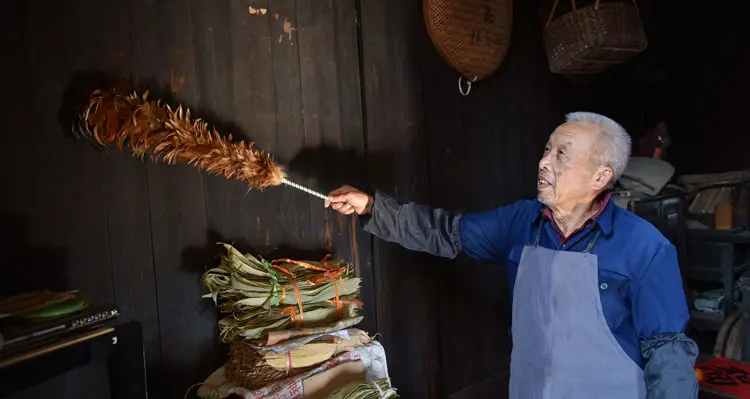
Jan. 25–30, 2022: New Year Shopping
Before Chinese New Year’s Eve, people buy New Year’s food and snacks, New Year's decorations, and New Year's clothes, fireworks, etc. Chinese New Year in China, like Christmas, is a boom time for shopping.
Chinese people may be thrifty most of the time, but they seem to spend generously during their traditional festivals. For example, they buy everyone new year clothes, whether they need them or not. On the days leading up to the festival, there are many New Year's street markets.
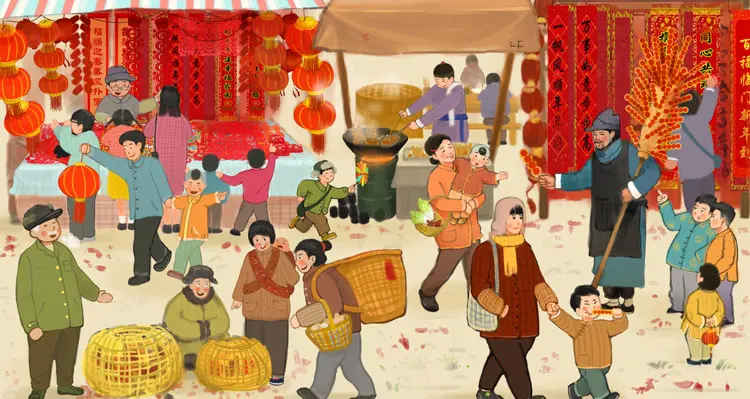
Chinese New Year's Eve (Jan. 31, 2022): 6 Traditions and Activities
1. Putting Up New Year Decorations
Although some people decorate their houses several days before the festival, most people do it on Chinese New Year's Eve. Houses are decorated with red lanterns, red spring couplets, paper cuttings, and New Year's paintings.
Putting up those decorations is thought to keep evil away and pray for blessing, longevity, health, and peace. 2022 is a Year of the Tiger, so tiger images will appear on decorations.
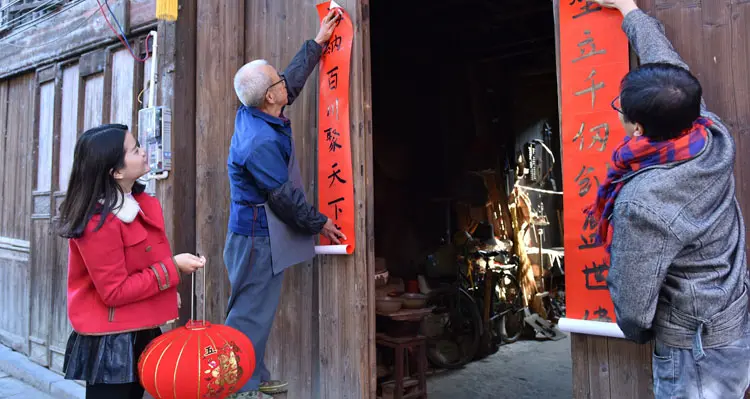
2. Offering Sacrifices to Ancestors
Offering sacrifices to ancestors shows respect and piety. In addition, ancestral spirits are believed to protect their descendants and help them become prosperous.
Many worship on Chinese New Year's Eve, before the reunion dinner, to show that they are letting their ancestors "eat" first. Offerings of meat, wine, joss sticks, and joss paper are placed in front of the shrine/grave.
3. Enjoying a Reunion Dinner
The Lunar New Year's Eve reunion dinner is a "must-do" dinner with all family members reuniting. Chinese try very hard to make this family event, often traveling long distances. This is the main reason for the huge travel stress throughout China.
Big families including several generations sit at round tables and enjoy the food and time together.
Dishes with lucky meanings must be included in the dinner such as fish, dumplings, Nian Gao (sticky rice cake), and spring rolls. Many Lunar New Year foods are symbolic.
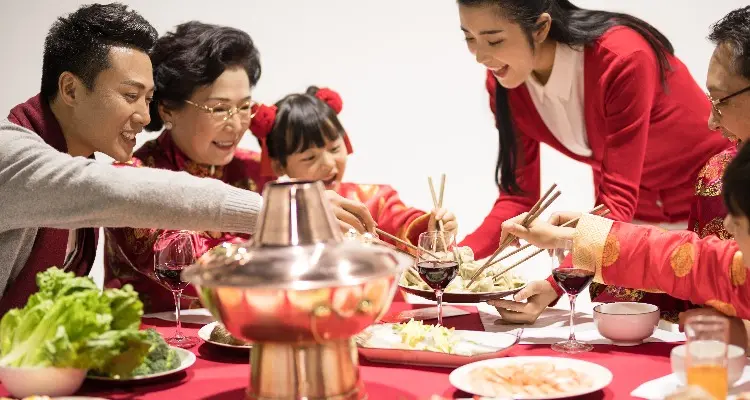
4. Watching CCTV's New Year Gala
It's become customary for many families to watch the CCTV New Year Gala while having their dinner. The Gala starts at 8 pm and ends when the Chinese New Year arrives at midnight.
It features traditional, folk, and pop performances from China's best singers, dancers, and acrobats.
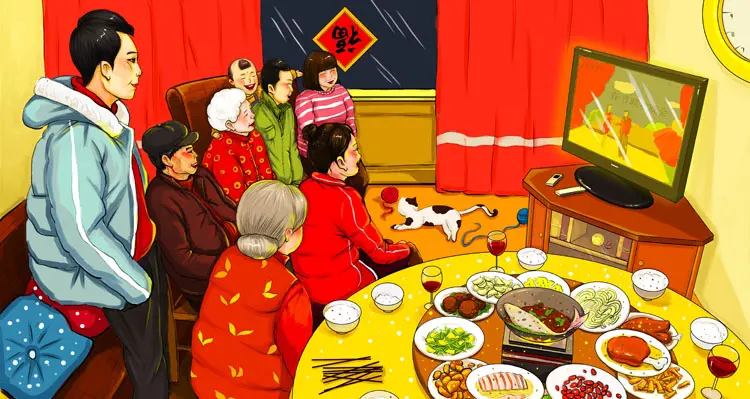
5. Giving Red Envelopes (Lucky Money) to Kids
Parents usually give their children red envelopes after the reunion dinner, wishing them health, growth, and good studies in the coming year.
Money in red envelopes is believed to bring good luck, as red is China's lucky color, so it's called lucky money.
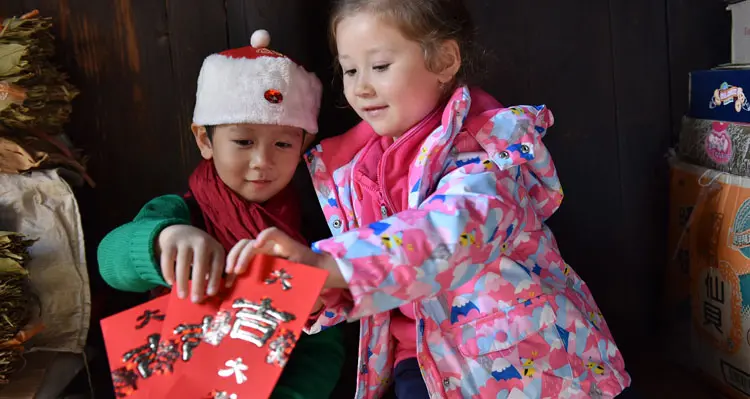
6. Staying Up Late
This custom is called shousui (守岁/show-sway/‘to keep watch over the year’). In the past, Chinese people used to stay up all night, but now most stay up only until midnight firecrackers and fireworks die down.









